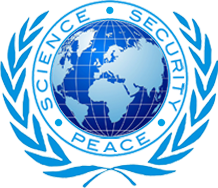GUSP Directors
Officers
- John Hagelin, Ph.D. International President Quantum Physicist, USA; Director, Institute of Science, Technology and Public Policy; Executive Director, International Center for Invincible Defense
- Ashley Deans, Ph.D. Executive Vice President; Astrophysicist, Canada; Director of International Programs, David Lynch Foundation
- Tony Nader, M.D., Ph.D. Chairman of the Board & Director of Brain and Cognitive Science, GUSP; International President, Global Country of World Peace
- Hon. Yukio Hatoyama, Ph.D. Prime Minister of Japan, 2009-2010; Member, House of Representatives, 1986-2012; Founder and Chair, Democratic Party of Japan
- Lt. Gen. José Martí Villamil Chief of Staff of the Army; Chief of Staff, Joint Command; Vice-Minister of Defense; General Secretary, National Security Council, Ecuador
- S.D. Maksymenko, D.Sc. Prof. and Academician, National Academy of Pedagogical Sciences; Chair, Society of Psychologists, Ukraine
- Guram Chachanidze, D.Sc. President, International Academy of Sciences of Education Informatization; Director, European Education Center; Academician, Georgia
- Ash Pachauri, Ph.D. Senior Advisor, Environmental Security; Senior Mentor, the POP Movement; Technical Advisor, WHO, India
- Maj. Gen. Kulwant Singh, Ph.D., U.Y.S.M. Commander, Antiterrorism Combat Formations, India
- Ibrahim Said, M.Sc., M.Phil. Specialist in Nuclear Disarmament and Nonproliferation; UN Fellow; Ministry of Foreign Affairs, Egypt
- Lt. Col. Gunter Chassé Vice President of Military Science; Commander, Integrated NATO Air Defense, Air Force, Germany
- Harald Harung, Ph.D. Peak Performance Researcher, Oslo Metropolitan University, Norway
- René Drucker Colin, Ph.D. Neuroscientist; Brain Physiologist; Former President, Academy of Sciences, Mexico
- Agyeman Badu Akosa, M.D. President, Commonwealth Medical Association (Ret.); Director-General, Ghana Health Service (Ret.), Ghana
- Hon. Kigyagi Arimpa John Senior Presidential Advisor on Environment & Climate Change; Member of Parliament (Ret.); Conservation Biologist, Uganda
- Aftab Ahmad Chattha, Ph.D. President of the National Academy of Young Scientists (NAYS), Founder and Chairman of the Center for Education, Science, and Technology (CEST), Pakistan
- Ricardo Navarro, D.Sc. Founder and President, Center for Appropriate Technology (CESTA), El Salvador
- Col. Brian Rees, M.D., M.P.H. Command Surgeon, Medical Corps, US Army Reserve, USA; Brigade Surgeon, Afghanistan
- Mohd Khalid Naseemi, M.S. Director-General, Afghanistan Environmental Society; Chief of Staff, National Environmental Protection Agency (2008-2013), Afghanistan
- Iurie Canaşin, Ph.D. Social and Political Scientist; Advisor and Member, President’s Council, Moldova
- Csaba Varga, D.Sc. Social Theorist; President, Institute for Strategic Research, Hungary
- E.E. Rosinger, D.Sc. Emeritus Professor of Pure and Applied Mathematics, University of Pretoria, South Africa
- Mabrouk Benhamou, Ph.D. President, Polymer and Soft-Matter Physics Society; Polymer Physicist, Morocco
- John Fagan, Ph.D. Vice President of Global Food Safety and Security; Chair & CSO, Global ID Group; Molecular Biologist, USA
- Vecram Addithyen, M.D. Founder and Director, Ufa World Clinics, India; Professor of Medical Sciences, Ajman University, UAE
- Col. Jitendra Jung Karki Commanding Officer, Shreenath Army Battalion, Nepal
Dr. John Hagelin, International President
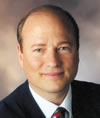 John Hagelin, Ph.D., is a world-renowned quantum physicist, educator, public policy expert, and leading proponent of peace.
John Hagelin, Ph.D., is a world-renowned quantum physicist, educator, public policy expert, and leading proponent of peace.
Dr. Hagelin received his A.B. summa cum laude from Dartmouth College and his M.A. and Ph.D. from Harvard University, and conducted pioneering research at CERN (the European Center for Particle Physics) and SLAC (the Stanford Linear Accelerator Center). His scientific contributions in the fields of electroweak unification, grand unification, super-symmetry and cosmology include some of the most cited references in the physical sciences. He is also responsible for the development of a highly successful grand unified field theory based on the superstring. Dr. Hagelin is therefore among the elite cadre of physicists who have fulfilled Einstein’s dream of a “theory of everything” through their mathematical formulation of the unified field—the most advanced scientific knowledge of our time.
But Dr. Hagelin has also applied this most advanced knowledge for the practical benefit of humankind. He has pioneered the use of unified field-based technologies proven to reduce crime, violence, terrorism, and war and to promote peace throughout society. He has published groundbreaking research establishing the existence of long-range “field effects” of consciousness generated through collective meditation, and has shown that large meditating groups can effectively defuse acute societal stress—thereby preventing violence and social conflict, and providing a practical foundation for permanent world peace.
For the last quarter century, Dr. Hagelin has led an international investigation into the nature and origin of consciousness, including higher states of human consciousness. In his seminal book, Manual for a Perfect Government, Dr. Hagelin shows how, through educational programs that develop human consciousness, and through policies and programs that effectively harness the laws of nature, it is possible to solve and to prevent acute social problems, and to profoundly enhance governmental achievements.
In recognition of his outstanding achievements, Dr. Hagelin was named winner of the prestigious Kilby Award, which recognizes scientists who have made “major contributions to society through their applied research in the fields of science and technology.” The award recognized Dr. Hagelin as “a scientist in the tradition of Einstein, Jeans, Bohr and Eddington.”
Dr. Hagelin is currently international president of the Global Union of Scientists for Peace and the director of the Institute of Science, Technology and Public Policy, a leading science and technology think tank.
Ashley Deans, Ph.D., Executive Vice President
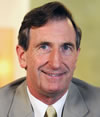 Ashley Deans, Ph.D., is a space physicist who has published extensively in leading refereed journals on quantum cosmology, space science, and sociology. He has conducted research at the Harvard College Observatory, Cambridge, Massachusetts, USA, and the Culham Center for Fusion Energy, Oxfordshire, UK.
Ashley Deans, Ph.D., is a space physicist who has published extensively in leading refereed journals on quantum cosmology, space science, and sociology. He has conducted research at the Harvard College Observatory, Cambridge, Massachusetts, USA, and the Culham Center for Fusion Energy, Oxfordshire, UK.
Dr. Deans graduated with honors in physics in 1969 from Imperial College, London University, UK. He received his Ph.D. in 1976 in space physics from the Centre for Research in Earth and Space Science, York University, Toronto, Canada, and received a post-graduate fellowship from the National Research Council of Canada. Dr. Deans is currently an Associate of the Royal College of Science.
As an educator, Dr. Deans has traveled to over 80 countries giving invited talks on “Consciousness-Based” education—education that incorporates GUSP’s brain-based approach to peace. His book, A Record of Excellence, and his published articles describe the benefits of this approach, and for this work he received the Sears-Roebuck Foundation Teaching Excellence and Campus Leadership Award. He is currently Director of International Programs for the David Lynch Foundation.
Dr. Tony Nader, MD, PhD, Chairman of the Board
 Dr. Tony Nader, MD, PhD, is Chairman of the Board of GUSP, as well as International Director of Brain and Cognitive Science.
Dr. Tony Nader, MD, PhD, is Chairman of the Board of GUSP, as well as International Director of Brain and Cognitive Science.
Dr. Nader is a world authority on the science of consciousness and the brain, including its application to conflict resolution and peace studies. He is also the Founder and Editor-in-Chief of the International Journal of Mathematics and Consciousness, and has published numerous books and scientific papers.
Dr. Nader received his MD degree from the American University of Beirut, where he studied internal medicine and psychiatry. He received his PhD in the area of Brain and Cognitive Science from the Massachusetts Institute of Technology (MIT).
Dr. Nader was a Clinical and Research Fellow in Neurology at the Massachusetts General Hospital, Harvard Medical School, USA, and Assistant Director of the Clinical Research Center (CRC) at MIT. He conducted research on neurochemistry, neuroendocrinology, and the relationship between diet, age, behavior, mood, seasonal influences, and neurotransmitter and hormonal activity, and on the role of neurotransmitter precursors in medicine.
His interest in the full potential of the human mind led him to the practice of Transcendental Meditation (TM), and he soon began working closely with Maharishi Mahesh Yogi, the Vedic sage who introduced TM. For years he traveled extensively worldwide as the International President of Maharishi University of Management.
In appreciation for his achievements and profound knowledge of both Vedic Science and modern science, Dr. Nader was honored by Maharishi with the title “Maharaja Adhiraj Rajaraam” and — as the successor of Maharishi — given responsibility for guiding the Global Country of World Peace, the umbrella organization for all of Maharishi’s worldwide legacy of administration, knowledge, and practical technologies.
Yukio Hatoyama, Ph.D.
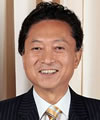 Yukio Hatoyama, Ph.D., was Prime Minister of Japan from 2009 to 2010. He served in the Japanese House of Representatives for more than 25 years and co-founded with his brother the Democratic Party of Japan in 1996, serving as its chair and secretary-general until he led it to victory in the 2009 elections.
Yukio Hatoyama, Ph.D., was Prime Minister of Japan from 2009 to 2010. He served in the Japanese House of Representatives for more than 25 years and co-founded with his brother the Democratic Party of Japan in 1996, serving as its chair and secretary-general until he led it to victory in the 2009 elections.
Dr. Hatoyama comes from a very prominent Japanese family that includes four generations of leading politicians and educators. His great-grandfather was speaker of the House of Representatives in the Imperial Diet in the 1890s and the president of Waseda University, and his great-grandmother founded Kiyoritsu Women’s University. His paternal grandfather founded both the Democratic Party and the Liberal Democratic Party, and served as Prime Minister of Japan in 1954–56. His maternal grandfather founded Bridgestone Corporation, the global tire manufacturer. His father was Japan’s foreign minister, and his brother was Japan’s minister of internal affairs and communication.
Dr. Hatoyama’s long list of accomplishments as Prime Minister include significant reductions of wasteful government spending and advances and increased funding to improve education, family life, healthcare, and housing. He substantially improved relations with other East Asian nations, notably China, and worked to create a more equitable and transparent relationship with the U.S. After stepping down as Prime Minister, he continued to serve in the House of Representatives for another two years and took a principled stand against the restarting of Japanese nuclear reactors.
In 2006, Time magazine named Dr. Hatoyama the sixth most influential person in the world in its annual “Time 100” issue. Among his many other awards, Dr. Hatoyama received the Sustainable Development Leadership Award of the 2010 Delhi Sustainable Development Summit for “his effort to confront climate change and leading his government to make it a main issue.”
Dr. Hatoyama holds a Ph.D. degree in industrial engineering from Stanford University, USA, and is a past professor at Tokyo Institute of Technology and Senshū University. He is currently honorary chairman and a senior consultant of Hoifu Energy Group Limited.
Lieutenant General José Martí Villamil de la Cadena
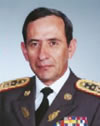 Lt. Gen. José Martí Villamil de la Cadena (Ret.) served as Vice-Minister of Defense and General Secretary of the National Security Council of Ecuador. A former brigade commander, he was Chief of Staff of the Army, Commander of Ground Theatre Operations, and Chief of Staff of the Joint Command. He was a professor at both the War Academy and the Institute of Higher Defense Studies in Ecuador and also a fellow of the Center for Strategic Studies in London.
Lt. Gen. José Martí Villamil de la Cadena (Ret.) served as Vice-Minister of Defense and General Secretary of the National Security Council of Ecuador. A former brigade commander, he was Chief of Staff of the Army, Commander of Ground Theatre Operations, and Chief of Staff of the Joint Command. He was a professor at both the War Academy and the Institute of Higher Defense Studies in Ecuador and also a fellow of the Center for Strategic Studies in London.
As Vice-Minister of Defense of Ecuador, Gen. Villamil initiated “The Coherence Project,” a field test of the Brain-Based Approach to Peace and its effects on the long-standing border war between Ecuador and Peru. He subsequently co-authored the article “Project: Coherence,” describing how 3,000 Ecuadorian soldiers practicing the Brain-Based Approach to Peace together quickly brought an end to this escalating conflict—thereby creating peace and improved commerce and diplomacy between the two nations.
Gen. Villamil is a graduate of the Inter-American Defense College in Washington, D.C., where he later served as Chief of the Ecuadorian Military Mission and Delegate to the Inter-American Defense Board. He graduated as a second lieutenant of Cavalry from the Ecuadorian Military School “Eloy Alfaro” in 1962. He retired from active duty in April 1996 and now collaborates with the newspaper El Comercio and the economic magazine Gestión.
S. D. Maksymenko, D.Sc.
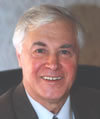 Sergiy Dmytrovych Maksymenko, D.Sc., is professor of psychology, Honored Scientist, and Academician of the National Academy of Pedagogical Sciences (NAPS) of Ukraine. He is also Secretary-Academician of the Department of Psychology, Age Physiology and Defectology and director of the G.S. Kostyuk Institute of Psychology at NAPS. He is a member of the International Council of Psychologists (USA); a member of the European Academy of Natural Sciences (FRN. Hannover); and chairman of the Society of Psychologists in Ukraine.
Sergiy Dmytrovych Maksymenko, D.Sc., is professor of psychology, Honored Scientist, and Academician of the National Academy of Pedagogical Sciences (NAPS) of Ukraine. He is also Secretary-Academician of the Department of Psychology, Age Physiology and Defectology and director of the G.S. Kostyuk Institute of Psychology at NAPS. He is a member of the International Council of Psychologists (USA); a member of the European Academy of Natural Sciences (FRN. Hannover); and chairman of the Society of Psychologists in Ukraine.
Dr. Maksymenko is the author of approximately 650 scientific publications, including 28 monographs, over 400 scientific papers, 30 course books and 32 textbooks. These include the first Ukrainian textbook, Psychology of Personality, the high school course book General Psychology (published in Russian, Ukrainian and English), and Experimental Psychology, Differential Psychology, Genetic Psychology, Medical Psychology, Pathopsychology, and other books.
Based on theoretical and experimental studies conducted under his guidance, Dr. Maksymenko founded the Ukrainian Scientific School of Genetic Psychology, which implements concepts of developmental and pedagogical instruction. He has supervised 300 Ph.D. theses and 48 doctoral theses.
As a full member (academician) of the International Council of Psychologists (U.S.A., 1991), Dr. Maksymenko coordinates research on the development and use of experimental methods in the field of education and personal development. Among his many awards is the Albert Schweitzer medal of the European Academy of Natural Sciences (Hanover, Germany, 2008).
Guram Chachanidze, D.Sc.
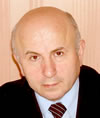 Guram Chachanidze, D.Sc., is president of the International Academy of Sciences of Education Informatization, director of the European Education Center, and an Academician of three educational institutions: the International Academy of Science and Innovation Technologies, the Academy of Georgian Education Sciences, and the International Informatization Academy of the United Nations.
Guram Chachanidze, D.Sc., is president of the International Academy of Sciences of Education Informatization, director of the European Education Center, and an Academician of three educational institutions: the International Academy of Science and Innovation Technologies, the Academy of Georgian Education Sciences, and the International Informatization Academy of the United Nations.
Dr. Chachanidze is a UNESCO expert in the field of language development in cyberspace. He is founder and president of the Georgian Sciences and Society Development Foundation “Intellect” and founder, editor in chief, and publisher of its international scientific journal Intellect.
Dr. Chachanidze is currently a professor at the Georgian Technical University. For many years he was head of the doctoral program and dissertation council at I. Gogebashvili Telavi State University, head of the Department of Informatics at Kutaisi State University, and head of the state exam commission at Sokhumi State University.
Dr. Chachanidze is the recipient of numerous awards and commendations, including an honorary doctorate from Zaman University of Cambodia, the Medal of Honor (since 1998), and the Ukrainian Medal of Yaroslav the Wise. In earlier work at the Tbilisi Metro Department, he was credited with 15 inventions, including intellectual property rights.
Dr. Chachanidze has edited three national mathematics manuals as well as 200 scientific works, guides, etc. in Georgia and internationally. He supervised the implementation of modern systems of management in numerous industrial and governmental settings, including the cities of Tbilisi and Kutaisi and the Ministry of Justice. He has also worked on projects to translate the Georgian constitution and language for the Armenian and Azeri populations. He has been a scientist-consultant for disabled warriors and veterans, and he has organized numerous scientific symposia, including international conferences on peace.
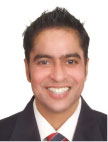
Dr. Ash Pachauri
Senior Advisor on Environmental Security
Dr. Ash Pachauri is Senior Mentor to the Protect our Planet (POP) Movement, which empowers the youth to participate actively in addressing issues of climate change faced by our planet. The POP Movement is engaged in over 100 national and international initiatives to implement renewable energy, ensure environmental sustainability, and combat climate change.
Widely published, winner of the prestigious Overseas Research Scholarship, awarded for advanced studies in the U.K. and recognized for his academic achievements, Dr. Pachauri pursues interests in research and teaching through ongoing collaboration with universities and institutions. Dr. Pachauri has been recognized by the United Nations for his dedication and leadership in their flagship publication “Portraits of Commitment.” In 2021, he was awarded the GlobalMindED Inclusive Leadership Award for action in the field of Energy and Sustainability.
Dr. Pachauri has led over 20,000 workshops, events, and activities globally to outreach to youth and communities to promote health and sustainable development. He promotes information technology for health, education, and geo-informatics and is a master trainer in behavior change communications and strategic health leadership. He is also a technical advisor to the World Health Organization on Self-Care global guidelines.
Dr. Pachauri has a PhD in decision behavior and a master’s degree in international management. He is an Associate Fellow of the World Academy of Art and Science and also serves on the Boards and advisory groups of several organizations worldwide. He worked with McKinsey & Company before pursuing a career in the social development arena, and his experience in the field of public health emerges from a range of initiatives spearheaded by the Bill & Melinda Gates Foundation, PATH, the UN, and CDC program interventions in the US.
Note: The POP Movement was co-founded by Dr. Pachauri and his father, Lt. Dr. R.K. Pachauri, who chaired the Intergovernmental Panel on Climate Change (IPCC) from 2002 to 2015 and was also a founding director of the Global Union of Scientists for Peace. We are delighted that Dr. Ash Pachauri is carrying on this important work as a senior advisor to GUSP.
Major General Kulwant Singh, Ph.D., U.Y.S.M.
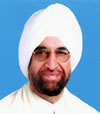 Major General Kulwant Singh, Ph.D., U.Y.S.M. (Ret.), is a veteran of two wars with Pakistan (1965 and 1971). He commanded two active combat formations, both in snowbound high-altitude areas. He fought terrorism in Sri Lanka and India in highly challenging and hostile environments. He was awarded the Uttam Yudh Sewa Medal, the second highest decoration for senior officers during operations in Sri Lanka as part of the IPKF (Indian Peace Keeping Force).
Major General Kulwant Singh, Ph.D., U.Y.S.M. (Ret.), is a veteran of two wars with Pakistan (1965 and 1971). He commanded two active combat formations, both in snowbound high-altitude areas. He fought terrorism in Sri Lanka and India in highly challenging and hostile environments. He was awarded the Uttam Yudh Sewa Medal, the second highest decoration for senior officers during operations in Sri Lanka as part of the IPKF (Indian Peace Keeping Force).
Major General Singh received his Ph.D. and M.Sc. in Defense Studies from Chennai University; a postgraduate diploma in Human Resource Development from Indira Gandhi National Open University (IGNOU), New Delhi; and a postgraduate diploma in Management from the Regional College of Management and Technology (RCMT).
Today he is leading an international group of generals and defense experts that advocates Invincible Defense Technology to promote national security and peace. He has published extensively on IDT in countries around the globe.
Ibrahim (Said) Ibrahim, M.Sc., L.L.M., M.Phil.
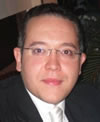 Mr. Ibrahim is a career diplomat and specialist in nuclear technology as applied to disarmament and nonproliferation issues. He is currently Consular Officer at the Egyptian Embassy in Tokyo. He previously served in the Egyptian Ministry for Foreign Affairs and as a Ministry representative to the League of Arab States (Cairo), as a United Nations Fellow, and at the Cooperative Monitoring Center, Global Security Programs, at Sandia National Labs in New Mexico, USA.
Mr. Ibrahim is a career diplomat and specialist in nuclear technology as applied to disarmament and nonproliferation issues. He is currently Consular Officer at the Egyptian Embassy in Tokyo. He previously served in the Egyptian Ministry for Foreign Affairs and as a Ministry representative to the League of Arab States (Cairo), as a United Nations Fellow, and at the Cooperative Monitoring Center, Global Security Programs, at Sandia National Labs in New Mexico, USA.
Mr. Ibrahim has an M.Phil. in Nuclear Engineering from the University of Ghana (2009–2011); an L.L.M. in International and Comparative Nuclear Law and Policy (2011) from the University of Dundee, Scotland; and an M.Sc. in Nuclear Science and Technology from the University of Manchester, England (2009–2012). He was a member of the Faculty of Mathematics and Natural Sciences, Department of Physics, University of Oslo, in 2012.
As a rising scientist and diplomat, Mr. Ibrahim was part of the James Martin Center for Nonproliferation Studies Next Generation Initiative. The CNS is part of the Monterey Institute of International Studies, which is the largest NGO in the United States that focuses on security and combating the spread of weapons of mass destruction (WMD). He has had extensive international training and experience, and has received many awards and honors for his work.
Lieutenant Colonel Gunter Chassé
Vice-President of Military Science
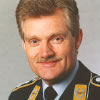 Lt. Colonel Gunter Chassé (Ret.) is a career officer who served with the German Air Force, holding command positions in the Integrated NATO Air Defense. He also served in Home Defense, with territorial responsibilities based on his specialized military training in air defense weapon systems. He was decorated with the Honorary Cross of the German Armed Forces in Gold.
Lt. Colonel Gunter Chassé (Ret.) is a career officer who served with the German Air Force, holding command positions in the Integrated NATO Air Defense. He also served in Home Defense, with territorial responsibilities based on his specialized military training in air defense weapon systems. He was decorated with the Honorary Cross of the German Armed Forces in Gold.
Colonel Chassé has traveled widely in Europe, Africa, the Middle East, India, Southeast Asia, Australia and New Zealand to promote the Invincible Defense Technology, a proven, field-tested technology for the prevention of war and for achieving national security. He is founder and director of the Institute of Invincible Defense in Germany and has authored many published articles on the Invincible Defense Technology.
Harald Harung, Ph.D.
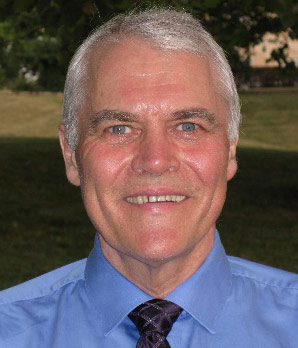 Harald S. Harung, Ph.D., is one of the world’s foremost researchers on higher mind-brain development and its impact on successful performance and self-actualization. Co-discoverer of the key neurophysiological and psychological markers of peak performance, and co-designer of both a theoretical model and an experimental scale to measure mind-brain development, he is the author of six books (including World-Class Brain) and over 60 journal articles and conference presentations focused on maximizing human and organizational performance. He is professor (associate) of management and performance at Oslo Metropolitan University in Norway, where for many years he has been teaching popular courses on leadership, ethics, and peak performance to thousands of students.
Harald S. Harung, Ph.D., is one of the world’s foremost researchers on higher mind-brain development and its impact on successful performance and self-actualization. Co-discoverer of the key neurophysiological and psychological markers of peak performance, and co-designer of both a theoretical model and an experimental scale to measure mind-brain development, he is the author of six books (including World-Class Brain) and over 60 journal articles and conference presentations focused on maximizing human and organizational performance. He is professor (associate) of management and performance at Oslo Metropolitan University in Norway, where for many years he has been teaching popular courses on leadership, ethics, and peak performance to thousands of students.
Dr. Harung collaborates with a wide range of universities, corporations, and institutions in 20 countries around the world and is the recipient of numerous awards and grants. He holds a Ph.D. in computer science from the University of Manchester in England and has worked as a researcher at Oxford University. He has also been a world-class athlete, especially in orienteering (running and navigating in a forest using map and compass), where he won the British Knight of the Night award as orienteering champion and coached the national orienteering team, and in the team sport of handball, where he was twice British champion. His groundbreaking work in the neurophysiology and physiology of peak performance is thus based on his direct personal experience.
René Raúl Drucker Colin, Ph.D.
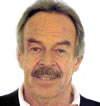 Dr. René Drucker Colin conducts research and teaches at the Institute of Cellular Physiology at the National Autonomous University of Mexico (UNAM), Mexico City, where he is researcher emeritus. He was President of the Mexican Academy of Sciences from 2000 to 2002.
Dr. René Drucker Colin conducts research and teaches at the Institute of Cellular Physiology at the National Autonomous University of Mexico (UNAM), Mexico City, where he is researcher emeritus. He was President of the Mexican Academy of Sciences from 2000 to 2002.
His current focus is molecular neuropathology and includes the effects of magnetic fields, adult stem cells, neurophysiology of sleep, nicotine and depression, and transplants in neurodegenerative processes. He has published 250 scientific papers and has developed science programs for radio and television for over 10 years, and both his research and journalism have been recognized worldwide.
In 2012 Dr. Drucker Colin was honored with the UNESCO Albert Einstein Medal in Science, given in India, for his ardent promotion of science. His numerous other awards include a Guggenheim Fellowship in 1980, the National Prize of Sciences and Arts in 1987, the UNAM Scientific Research Award in 1988, the Prize of Mexican Health Foundation in 1995, and the Medical Excellence Award of the Ministry of Health in 2000.
Dr. Drucker Colin’s earlier academic positions include UNAM Head of Department, Neuroscience Institute of Cellular Physiology (1985–1990); Department Head of Physiology, Faculty of Medicine (1991–2000); and Coordinator of Scientific Research (2000–2007).
Dr. Drucker Colin became a psychologist in 1962 at UNAM. He earned his master’s degree in psychophysiology (1964) at Northern Illinois University, USA and his doctorate in physiology (1971) at the University of Saskatchewan, Canada.
Agyeman Badu Akosa, M.D.
 Prof. Agyeman Badu Akosa, M.D., is the executive director of Healthy Ghana, chairman of the Executive Board of the African Population Health Research Centre, and a member of the Board of Governors for the ENSIGN – College of Public Health. He previously served as President of the Ghana Medical Association, President of the Commonwealth Medical Association, and Director General of the Ghana Health Service.
Prof. Agyeman Badu Akosa, M.D., is the executive director of Healthy Ghana, chairman of the Executive Board of the African Population Health Research Centre, and a member of the Board of Governors for the ENSIGN – College of Public Health. He previously served as President of the Ghana Medical Association, President of the Commonwealth Medical Association, and Director General of the Ghana Health Service.
Prof. Akosa is a Fellow of the Ghana Academy of Arts and Sciences, Ghana Medical Association, Royal College of Pathologists, West African College of Physicians and the Ghana College of Physicians. He has received Ghana’s second highest award, Companion of the Order of the Volta (CV), for public and medical services.
Prof. Akosa was previously a consultant histopathologist and clinical director of pathology in the UK and professor and head of the Department of Pathology in the University of Ghana Medical School.
Hon. Kigyagi Arimpa John, M.Sc.
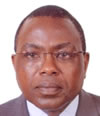 The Honorable Kigyagi Arimpa John is Senior Presidential Advisor on Environment and Climate Change to the President of the Republic of Uganda. He was a Member of Parliament in Uganda for over 20 years and was recognized as the best-performing MP in the Eighth Parliament by the Africa Leadership Institute Parliamentary Scorecard. He is chairman and managing director of Riverside Farm Ltd., where he was also executive director for 25 years.
The Honorable Kigyagi Arimpa John is Senior Presidential Advisor on Environment and Climate Change to the President of the Republic of Uganda. He was a Member of Parliament in Uganda for over 20 years and was recognized as the best-performing MP in the Eighth Parliament by the Africa Leadership Institute Parliamentary Scorecard. He is chairman and managing director of Riverside Farm Ltd., where he was also executive director for 25 years.
Mr. Kigyagi holds an M.Sc. in conservation biology from Mbarara University of Science and Technology. He is chair of the International Association of Agiric Students and a member of the Soil Conservation Society of Uganda, the Society for Global Ethics, the Forest Governance Learning Group (Uganda), and the REDD+ Uganda Working Group.
Aftab Ahmad Chattha, Ph.D.
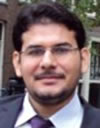 Aftab Ahmad, Ph.D., is founder and president of the National Academy of Young Scientists (NAYS) in Pakistan, where he oversees 3,500 registered members and 200 officials engaged in 15 national and international projects. He is also chairman of the Islamic World Young Scientists Academy; founder and chairman of the Center for Education, Science, and Technology (CEST); vice president of the World Merit Pakistan Council; founder of the Pakistan Stem Cell Society; and chief coordinator and former president of Sciforum Pakistan.
Aftab Ahmad, Ph.D., is founder and president of the National Academy of Young Scientists (NAYS) in Pakistan, where he oversees 3,500 registered members and 200 officials engaged in 15 national and international projects. He is also chairman of the Islamic World Young Scientists Academy; founder and chairman of the Center for Education, Science, and Technology (CEST); vice president of the World Merit Pakistan Council; founder of the Pakistan Stem Cell Society; and chief coordinator and former president of Sciforum Pakistan.
Dr. Ahmad earned his M.Phil. and Ph.D. degrees at the School of Biological Sciences, University of the Punjab in Lahore, Pakistan, and conducted postdoctoral research in tissue engineering at Nara Institute of Science and Technology in Japan. He is the author of five books and more than 50 publications in the field of cell and molecular biology. He is also coordinator of international affairs for Technology Times and Tech TV in Pakistan. He has organized and presented at over 50 workshops and 100 seminars and symposia, and was principal organizer of the 2012 National Essay Competition on Science for Peace.
Dr. Ahmad’s many awards include the Scientific Exchange Award from the American Association for the Advancement of Science (AAAS); the Young Investigator Award 2009 from the Pakistan Cardiac Society; selection as a Young Scientist Member of the World Economic Forum in 2012; and numerous grants and scholarships for international study and research. He is a Fellow of the Zoological Society of Pakistan and a member of many international scientific societies.
Ricardo Navarro, D.Sc.
 Ricardo Navarro founded the Salvadoran Center for Appropriate Technology (CESTA)—El Salvador’s largest environmental NGO—in 1980 to address his country’s acute social and environmental needs following a protracted civil war. As president of CESTA, Dr. Navarro worked in partnership with urban and rural communities to promote community-based strategies for reversing past environmental destruction and preventing future degradation, using a variety of innovative, sustainable technologies.
Ricardo Navarro founded the Salvadoran Center for Appropriate Technology (CESTA)—El Salvador’s largest environmental NGO—in 1980 to address his country’s acute social and environmental needs following a protracted civil war. As president of CESTA, Dr. Navarro worked in partnership with urban and rural communities to promote community-based strategies for reversing past environmental destruction and preventing future degradation, using a variety of innovative, sustainable technologies.
Dr. Navarro has also served as the president of Friends of the Earth International (FOE). These two organizations now work as one (CESTA-FOE) in El Salvador.
In 1995 Dr. Navarro received the prestigious Goldman Environmental Prize for his outstanding contributions to sustainable development. He received the Global 500 Environmental Prize in 1997, an award launched in 1987 by the United Nations Environment Programme (UNEP, 1972) to recognize and honor grassroots environmental and humanitarian achievement despite immense social, political and logistical obstacles.
Dr. Navarro studied in the USA at Purdue University (Indiana) and completed his D.Sc. in Technology and Human Affairs at Washington University, St. Louis, Missouri. He has authored numerous books and articles, and continues to educate and work with his fellow Salvadorans to address social and ecological challenges. (Photo courtesy of Goldman Environmental Prize.)
Colonel Brian M. Rees, M.D., M.P.H.
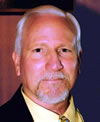 Brian Rees, M.D., retired from the US Army Reserve as a colonel after 37 years of commissioned service. A graduate of the US Army War College, he is a veteran of five tours in Iraq and Afghanistan, and spent eight years in hospital commands, including as chief medical officer for the Bagram Theater Internment Facility (home to all Taliban and Al-Qaeda detainees) and as outpatient physician for the detainees at Abu Ghraib prison in 2006 and at Camp Bucca in 2007. He is a member of the Veterans of Foreign Wars (VFW) and the American Legion. Currently he serves as co-chair of Operation Warrior Wellness of the David Lynch Foundation, and as director of TM4Vets, enhancing the availability of the Transcendental Meditation program for veterans and service personnel.
Brian Rees, M.D., retired from the US Army Reserve as a colonel after 37 years of commissioned service. A graduate of the US Army War College, he is a veteran of five tours in Iraq and Afghanistan, and spent eight years in hospital commands, including as chief medical officer for the Bagram Theater Internment Facility (home to all Taliban and Al-Qaeda detainees) and as outpatient physician for the detainees at Abu Ghraib prison in 2006 and at Camp Bucca in 2007. He is a member of the Veterans of Foreign Wars (VFW) and the American Legion. Currently he serves as co-chair of Operation Warrior Wellness of the David Lynch Foundation, and as director of TM4Vets, enhancing the availability of the Transcendental Meditation program for veterans and service personnel.
Dr. Rees received his medical degree and master’s degree in public health from Tulane University and is a board certified family physician. He has had his own private practice; after 9/11 he served as a physician in the California state prison system, as well as in the Veterans Administration.
Dr. Rees has researched the application of technologies of consciousness for the reduction of violent conflict, terrorism, and war and builds a case for this approach in his book Terrorism, Retaliation and Victory: Awaken the Soul of America to Defeat Terrorism without Casualties. He has also researched and written about the promotion of soldier resilience and resolution of PTSD, most recently as lead author of two published studies about the effects of Transcendental Meditation practice in resolving posttraumatic stress in Congolese refugees. His most recent book, Detained: Emails and musings from a spiritual journey through Abu Ghraib, Kandahar and other garden spots, was published in 2015. He has also published extensively in military journals and online sources about Invincible Defense Technology and its applications.
Mohd Khalid Naseemi, M.S.
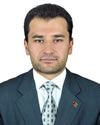 Mr. Mohd Khalid Naseemi is founder and Director-General of the Afghanistan Environmental Society, a leading national organization for environmental protection and sustainable development. He was chief of staff of the National Environmental Protection Agency (NEPA) from 2008 to 2013 and has also worked as a consultant and communication specialist though the Consultancy Services for Building Regulatory Capacity in a World Bank–funded NEPA project. He has participated in more than 40 international conferences on sustainable development and environmental issues in different counties around the world.
Mr. Mohd Khalid Naseemi is founder and Director-General of the Afghanistan Environmental Society, a leading national organization for environmental protection and sustainable development. He was chief of staff of the National Environmental Protection Agency (NEPA) from 2008 to 2013 and has also worked as a consultant and communication specialist though the Consultancy Services for Building Regulatory Capacity in a World Bank–funded NEPA project. He has participated in more than 40 international conferences on sustainable development and environmental issues in different counties around the world.
Mr. Naseemi has a Master’s degree in Political Science from Islamic Azad University and another Master’s Degree in Environmental Management, as well as a Diploma in Pharmacy. He has had extensive management and leadership experience for more than 15 years in government, NGOs, and CSOs. He is currently a member of the NEPA Civil Society Board and of the Green Environment and Development Organization, a leading NGO.
Iurie Canaşin, Ph.D.
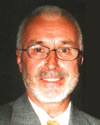 Iurie Canaşin is an advisor and member of the President’s Council in Moldova, a member of the Board of the Ministry of Culture, and an advisor to the International University of Management. He is also director of the Republican College of Fine Arts. His many international awards in science and the arts include the Order of the Republic of the President of Moldova, the Star of Romania/Commander of the President of Romania, and the gold medal for merits in education and the Order of Honor of the Academy of the CE/UNESCO in Ukraine.
Iurie Canaşin is an advisor and member of the President’s Council in Moldova, a member of the Board of the Ministry of Culture, and an advisor to the International University of Management. He is also director of the Republican College of Fine Arts. His many international awards in science and the arts include the Order of the Republic of the President of Moldova, the Star of Romania/Commander of the President of Romania, and the gold medal for merits in education and the Order of Honor of the Academy of the CE/UNESCO in Ukraine.
As a social and political scientist for more than 40 years, Dr. Canaşin has been a frequent featured speaker at international symposia on science, education, culture, and the arts throughout Europe and Asia.
Dr. Canaşin is also a highly respected artist, whose works have been exhibited throughout Europe, Asia, and North America and have won many national and international prizes, including the silver medal for Contributions to the Fine Arts from the Ministry of Culture in Russia.
Csaba Varga, D.Sc.
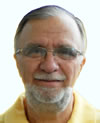 Csaba Varga is the president of the Institute for Strategic Research (ISR) in Budapest, Hungary, and leader of ISR’s metatheory-metaphilosophy group. A sociologist, professor, and prominent theorist of the emerging “knowledge and information society,” he teaches at the University of Pannon, the Budapest Economic College, the Moholy-Nagy University of Art and Design, and the Századvég Political School. He is also joint president of an e-Government Research Group and leader of the Future Research and Development Center at the University of Pannonia, where he has developed six university curricula in globalization/localization, the knowledge and information society, and the theory and practice of e-administration.
Csaba Varga is the president of the Institute for Strategic Research (ISR) in Budapest, Hungary, and leader of ISR’s metatheory-metaphilosophy group. A sociologist, professor, and prominent theorist of the emerging “knowledge and information society,” he teaches at the University of Pannon, the Budapest Economic College, the Moholy-Nagy University of Art and Design, and the Századvég Political School. He is also joint president of an e-Government Research Group and leader of the Future Research and Development Center at the University of Pannonia, where he has developed six university curricula in globalization/localization, the knowledge and information society, and the theory and practice of e-administration.
Professor Varga received his D.Sc. from the Department of Sociology at Eötvös Loránd Science University and also studied full-time at the Institute for Executive Training. His research areas include village, town, and area-structure research and design; futures research and strategy; theories of conservatism, globalization, and localization; the knowledge and information society; and metatheory, metaphilosophy, and theory of the new science. He is editor-in-chief of INCO and president of the editorial board of e-Világ, both journals about the information age; and he is author, editor, and co-author of many books and articles about the knowledge and information society.
Elemer Elad Rosinger, Ph.D.
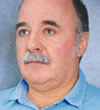 Elemer E. Rosinger is Emeritus Professor of pure and applied mathematics at the University of Pretoria, South Africa, where he has worked for thirty years. He received his D.Sc. in mathematics from the University of Bucharest, Romania, and has held permanent or visiting positions at several dozen universities and research institutes on five continents—including East and West Europe, the USA, Canada, New Zealand and Israel.
Elemer E. Rosinger is Emeritus Professor of pure and applied mathematics at the University of Pretoria, South Africa, where he has worked for thirty years. He received his D.Sc. in mathematics from the University of Bucharest, Romania, and has held permanent or visiting positions at several dozen universities and research institutes on five continents—including East and West Europe, the USA, Canada, New Zealand and Israel.
Professor Rosinger originated and first developed two major nonlinear mathematical theories and five major directions or disciplines in modern nonlinear mathematics. These have been critically important in cutting-edge scientific and technological applications, including quantum physics, optimization, multiple-criteria decision making, computer science, and category theory. He has collaborated in many industrial, economic, management, environmental and social projects for private and governmental organizations in Europe, the USA, South Africa, and elsewhere.
Professor Rosinger has authored eleven books of his own original research in pure and applied mathematics, as well as more than forty research papers published by leading journals and scientific book publishers. Most recently, he has published three books on philosophy, mainly pertaining to ontology, and, since his retirement in 2002, he has published over sixty articles electronically at the arXiv of Cornell University, USA. In addition to mathematics and its applications, he has been involved in a range of pursuits, among them metaphysics, philosophy, history, political science, economics, music, art and literature.
The South African National Research Foundation (NRF) has conferred upon Dr. Rosinger the top A-level ranking as research scientist, a peer-evaluation ranking given only to world leaders in their specific fields of science. In 2000 he was awarded the Bill Venter Literary Award, which recognizes outstanding contributions to research published in book form by university personnel in South Africa. Dr. Rosinger was also the recipient of the Gold Medal of the South African Mathematical Society and the Chancellor’s Award of the University of Pretoria.
Mabrouk Benhamou, Ph.D.
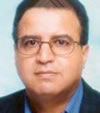 Mabrouk Benhamou is founder and president of the Moroccan Polymer and Soft-Matter Physics Society and professor of physics and head of polymer physics and critical phenomena at the Sciences Faculty of Université Moulay Ismail, Meknés, Morocco. He is an expert and advisor to the National Education Ministry of Morocco and to the National Center for Scientific and Technological Research. He is also a member and founder of the Moroccan Polymer Physics Society, the Moroccan Statistical Physics Society, and the Moroccan Association of Women in Science, and holds memberships in many other international science organizations in the fields of physics, computer science, engineering, and biological and chemical sciences.
Mabrouk Benhamou is founder and president of the Moroccan Polymer and Soft-Matter Physics Society and professor of physics and head of polymer physics and critical phenomena at the Sciences Faculty of Université Moulay Ismail, Meknés, Morocco. He is an expert and advisor to the National Education Ministry of Morocco and to the National Center for Scientific and Technological Research. He is also a member and founder of the Moroccan Polymer Physics Society, the Moroccan Statistical Physics Society, and the Moroccan Association of Women in Science, and holds memberships in many other international science organizations in the fields of physics, computer science, engineering, and biological and chemical sciences.
Dr. Benhamou holds two doctoral degrees in physics from CEA-Saclay, France. His many awards and distinctions include “Top 100 Scientists 2008” and “IBC Foremost Educators of the World 2008” from the International Biographical Center in the UK. He is a member of the editorial or advisory boards of more than 20 scientific journals, including the International Journal of Academic Research, and of the editorial review board of many more, including Physical Review E and the European Physical Journal B and E.
Dr. Benhamou is the author or editor of 14 books, more than 120 scientific articles, and over 200 presentations at scientific conferences. He has also supervised 40 Ph.D. theses and 36 graduate student projects and has helped organize over 100 national and international scientific conferences. He works in partnership with 30 other research institutes and universities, including the Max Planck Institute for Polymer Research, the French Institute of Health and Medical Research, and many others.
John Fagan, Ph.D.
International Director for Food Safety and Security
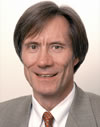 Dr. John Fagan is chairman and chief scientific officer of Global ID Group, an international company that verifies food purity, quality, and sustainability, and is principal investigator for several bio-safety research projects. He has conducted biomedical research at the US National Institutes of Health, examining molecular mechanisms in carcinogenesis. His research has been published in leading scientific journals and has been supported by millions of dollars in grant awards, including the prestigious National Institutes of Health Research Career Development Award. He holds a Ph.D. in molecular biology, biochemistry, and cell biology from Cornell University.
Dr. John Fagan is chairman and chief scientific officer of Global ID Group, an international company that verifies food purity, quality, and sustainability, and is principal investigator for several bio-safety research projects. He has conducted biomedical research at the US National Institutes of Health, examining molecular mechanisms in carcinogenesis. His research has been published in leading scientific journals and has been supported by millions of dollars in grant awards, including the prestigious National Institutes of Health Research Career Development Award. He holds a Ph.D. in molecular biology, biochemistry, and cell biology from Cornell University.
Dr. Fagan pioneered the development of innovative tools to verify food purity and sustainability, including testing methods to detect genetically engineered organisms in the food supply, the first certification program for non-genetically engineered foods, and a leading program for certifying corporate sustainability and ethics in the food and agricultural industries (ProTerra Certification). His expertise is sought by industry and government leaders, scientists, and the public, to whom he has presented hundreds of lectures around the world in the last decade.
Dr. Fagan was an early voice in the scientific debate on genetically engineered crops, and during the last 17 years has championed food purity, safety, nutrition, and food security around the world. He has worked globally to raise scientific questions regarding the health hazards of technologies such as genetic engineering, pesticides and food additives, and to uphold sustainable, agro-ecology-based technologies to assure a secure supply of pure, safe, healthy food for the world.
Vecram Addithyen, M.D.
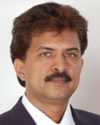 Vecram Addithyen, M.D., is founder, director, and consultant physiologist in lifestyle medicine at Ufa World Clinics in Bangalore and the founding director of the Royal Academy of Home & Earth Management in India. He is director of the Unified Realities Foundation and a senior academy fellow at the International Entrepreneurship Academy in Intentac, Italy. He has also served as professor of Medical Sciences at Ajman University of Science & Technology in United Arab Emirates.
Vecram Addithyen, M.D., is founder, director, and consultant physiologist in lifestyle medicine at Ufa World Clinics in Bangalore and the founding director of the Royal Academy of Home & Earth Management in India. He is director of the Unified Realities Foundation and a senior academy fellow at the International Entrepreneurship Academy in Intentac, Italy. He has also served as professor of Medical Sciences at Ajman University of Science & Technology in United Arab Emirates.
Dr. Addithyen received his M.D. in Physiology and a postgraduate diploma in Yoga from Annamalai University, Chidambaram, India, and holds an MBBS degree from Madras University. He has over 14 years’ experience in the medical and management fields, with particular reference to new research in neuroscience.
Dr. Addithyen’s current research focus is the unifying principles at work in neuroscience, physics, and the human physiology that can help reveal the underlying core structuring dynamics of natural law at the basis of health, innovation, entrepreneurship, and world peace.
Col. Jitendra Jung Karki, Nepal Army
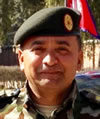 Col. (Ret.) Jitendra Jung Karki is the former commanding officer of the Shreenath Battalion in the armed forces of Nepal. He was also assigned to the No. 1 Brigade, which guards the President of Nepal. He served in the Army of Nepal for over 25 years.
Col. (Ret.) Jitendra Jung Karki is the former commanding officer of the Shreenath Battalion in the armed forces of Nepal. He was also assigned to the No. 1 Brigade, which guards the President of Nepal. He served in the Army of Nepal for over 25 years.
Col. Karki commanded an independent company in Nepal during the insurgency period from 2004–2006. He also participated in four UN missions:
- UNIFIL: United Nations Interim Force in Lebanon;
- ONUB: United Nations Operation in Burundi;
- UNAMSIL: United Nations Mission in Sierra Leone; and
- MONUC: United Nations Mission DR Congo
Col. Karki has a degree in commerce and is a graduate of the Nepalese Army Command and Staff College. He is an alumnus of the Near East South Asia (NESA) Center for Strategic Studies at National Defense University, Washington, D.C., USA. NESA promotes itself as “the preeminent U.S. Government institution for building relationships and understanding in the NESA region.”
Col. Karki has published widely on the topic of Invincible Defense Technology, an effective, nonviolent defense strategy endorsed by GUSP. After his retirement from the military, he founded Vedic Security Pvt. Ltd, an organization that promotes Invincible Defense Technology.
